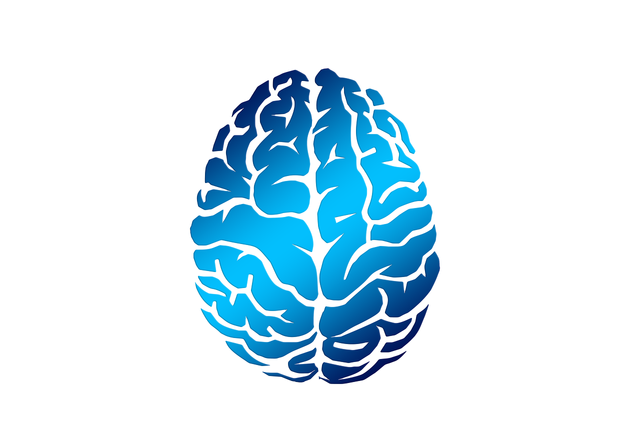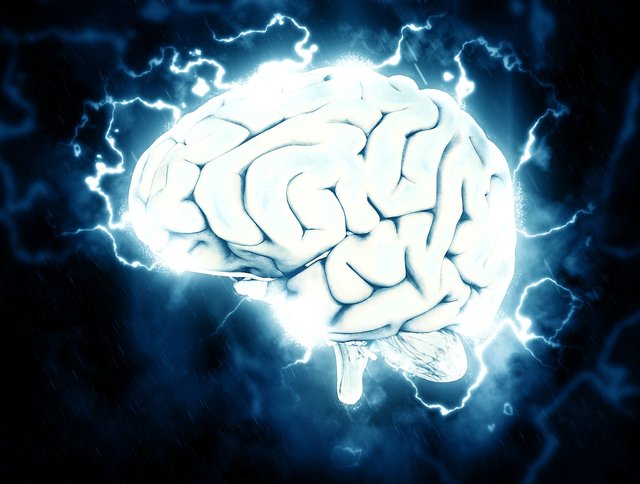Is Your Brain Too Excited?! Neurodegeneration By Over-Stimulation
Neurodegeneration. The Death of Our Brain Cells.
From our experience of the moment to our ability to remember the past or conceptualize the future, our entire lives arise from the harmonious activity of hundreds of billions of cells. This coordinated effort creates a seamless and unquestionable reality when it is working; so much so that we often take it for granted. Only when things are not working as intended to we consider to look under the hood (much like how we treat our cars or computers). But our brains are more than simple machines that need some oil here or some tweaking there, and there is surely a limit to our ability to tinker around ourselves. Our brains have been sculpted by literal billions of years of evolution, and will only continue to grow more adapted as our species continues.
Cell death, much like car engine problems or computer circuit damage, reflects things about the person affected; underlying neurodegeneration, we might find years of environmental ware, we might find deleterious behavior, and we might find genetic pre-dispositions. Pulling apart these contributing factors of degeneration through scientific study, neuroscientists have managed to learn much about what makes a brain happy and healthy, as well as what sorts of things can go wrong.
Neurodegeneration is often only thought of in the context of elderly people with a disease like Alzheimer's, Parkinson's, or Huntington's. While these cases are very serious and wide spread examples of neural death, they are far from the only causes. Excitotoxicity is a pathophysiology that causes cell death from over-stimulation. It is the mechanism by which cells die in the neurodegenerative diseases mentioned, as well as in stroke, TBI (traumatic brain injury), alcohol or benzodiazepine withdrawal, hypoglycemia (a future article to look out for), and even hearing loss. Excitotoxicity is responsible for an enormous portion of cell deaths and further loss of human life.
What is Excitoxicity?
Our neurons process information and derive meaning by sending electrical and chemical signals. These messages are the mechanism by which each cell can communicate and allow for the cohesion of data which we might call our mental state. Our neurons are subject to the laws of physics just like us, and depend on successful employment of physiological and chemical processes in order to complete their tasks. When failures or imbalances occur (and there are plethora of ways they might), cells can be put at risk for necrotic (caused by disease or injury) or apoptotic (self-programmed) death. Over-stimulation is one such imbalance that can cause catastrophic destruction in our neurons. So, what does it mean for a neuron to be over-"stimulated?"
When our neurons send chemical and electrical signals, one could say they are being "stimulated" or de-"stimulated." Positive inputs from synapses using glutamate (the main excitatory neurotransmitter in the human CNS) cause sodium and calcium ions to flood into the downstream cell, and increasing the positive charge intracellularly. This causes the cell to approach the threshold voltage, and makes it more likely to fire an action potential. Negative inputs from synapses using GABA (the main inhibitory neurotransmitter) cause the opposite effect, and reduce the downstream cell's chance of firing. If a cell receives too many positive inputs, excess calcium and sodium bombard the cell and causes a series of signal cascades. this process degrades the structural scaffolding (cytoskeleton), protective cell membrane, and the DNA of the cell. This in turn causes the cell to burst, releasing its contents into the extracellular space, and potentially putting the adjacent cells at risk of seeing the same fate. In serious seizures, the uncontrolled synchronous firing of cells causes a domino effect of spiraling cell death.
To protect from excitotoxicity, our brains have any neuro-protective mechanisms which it utilizes to regulate the balance of ions in each cell. Glial cells clear glutamate from synapses to ensure that they do not activate an reactivate the AMPA and NMDA receptors which allow for the passage of these ions. Inhibitory inputs dampen the excitation and limit excess firing. When these systems fail us, there are serious consequences. Our brains preform this miraculous task of balancing stimuli every moment to ensure that we can function, learn, grow, and endure the formidable forces of nature.
In a the lab that I previously did research at we investigated molecular correlates in an excitotoxicity model of stroke in C. elegans. Today, I work in a neuro-genetics lab studying neurodegenerative diseases in Drosophila. I encourage readers to ask questions, raise points, and join the discussion.
Thanks for reading. Feedback is always appreciated!
Recent Articles:
- Manipulating Memories: Instantly Eliminate a Fear
- GMOs: Addressing Environmental and Health Concerns
- Neural Plasticity: Shaping How We View Ourselves
- PTSD: The Psychology and Neurology of Trauma and Psychedelic Treatments
- Attending to the Moment: The Difference Between Knowing and Understanding
References:
- Ankarcrona Maria; et al. (October 1995). "Glutamate-induced neuronal death: A succession of necrosis or apoptosis depending on mitochondrial function". Neuron. 15 (4): 961–973.
- Rothstein, Jeffrey D., et al. "Knockout of glutamate transporters reveals a major role for astroglial transport in excitotoxicity and clearance of glutamate." Neuron 16.3 (1996): 675-686.
- Pitt, David, Peter Werner, and Cedric S. Raine. "Glutamate excitotoxicity in a model of multiple sclerosis." Nature medicine 6.1 (2000): 67.
- Doble, Adam. "The role of excitotoxicity in neurodegenerative disease: implications for therapy." Pharmacology & therapeutics 81.3 (1999): 163-221.
Images:




Nice and informative post. Thanks for sharing.
Thanks!
This is really informative. I had no idea we as a species had so much in-depth awareness of these microscopic structures. It is somewhat frightening to realise how deeply chemical intake may affect our mental well-being. Amazing, thanks for taking the time to share this information.
Thanks for the response! Our biological mechanisms never cease to amaze me. When it comes down to it we really are just a bunch of perceived molecules bumping around, the better we understand ourselves and our world, the more that we realize we don't understand them at all.
Take care! :)
Wow, how come I didn't know steemit has such informative,well referenced pieces?!Thanks for sharing. Very informative piece it is.
Thanks @easydimes
What a great read! Thanks! I will read it several times again!
That's pretty awesome. I remember learning in our neurology module that the main pathophysiology behind neurological damage in seizure is that once a neuron has fired an excessive number of times, it depletes it's energy stores. Unable to run the Na pumps it loses the ability to regulate membrane potential and begins to leak Glu into the surrounding tissue, also stimulating action potentials in surrounding cells!
Not sure how accurate this is, but a pretty phenomenal concept to understand!
Yeah! The death of one glutamatergic neuron basically causes a cascade of excitotoxisity.
If your interested, you can check out these NCBI papers:
Glutamatergic Mechanisms Related to Epilepsy
Glutamatergic Mechanisms Associated with Seizures and Epilepsy
Your headline caught my eye because I have a really excitable brain, that is, I love ideas and am often eager to pursue them. Fortunately, excitotoxicity refers to pathology, such as epilepsy and hypoglycemia, and not to someone who tends to be overactive. Since I am a person who loves ideas, I wondered, what can we do about this, to help ourselves? Turns out, prevention of epileptic seizures is important to prevent the damage. Also, it seems there's something that can be done to mitigate the damage from a hypoglycemic episode. https://www.ncbi.nlm.nih.gov/m/pubmed/25649993/ . Your post is fascinating. It got me reading all kinds of reference material that I sort of understand :)
Impresionante articulo! hace darnos cuenta de la complejidad del el ser humano y que todavía hay cosas que no sabemos acerca del mismo.
an upvote for this great posting.. you will become my favorite steem for finding about neuroscience you provide complete references, seems like academic writing.
Thanks so much! My mission is to provide a bridge between peer reviewed literature and everyday conversation. I greatly appreciate your support!
It sounds great, you are welcome.. i will check it out..
What kinds of processes contribute to excitotoxicity?
You are not just talking about thinking too hard, or being a disheveled thinker, right?
Are conditions like chronic pain, nerve and brain damage, or psychological manias and phobias the likely triggers for excitotoxicity.
There is a good deal of talk about this in the dog sport world right now, dogs running "too hot", and games being too hot to engage in frequently.
I'm aware that running hot comes with it's drawbacks, but I'm wondering how serious the chemical action has to be to see deleterious effects.
I'll be following your work. Thanks for sharing.
Excitotoxicity is physiological. While certain psychological things might cause behaviors that could put you at risk, there are far more subtle implications of excitotoxic cell death purely from psychologcial states. There is however, reason to believe that chronic stress can cause mPFC excitotoxicity. I will be writing an article in the near future about one example of this which involves anxiety and fear like behavior causing neurodegeneration via cholinergic modulators in rats, and a current study in humans. Be sure to look out for it!
Oooo... forgot another part of the question.
Is there a difference between hyperactivity in primary vs tertiary processes when it comes to excitotoxicity?
Cholinergic, indeed... :D
Interesting word.
I look forward to it.
Send at least 0.01 SBD to @boostbot with a post link in the memo field to receive upvote next round.